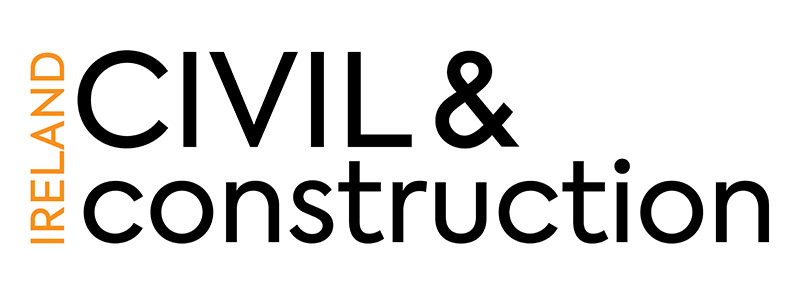
There are many issues to the supply chain today that is having an impact to many industries, most notably construction is being heavily impacted in the procuring materials and labour to projects.
With rising material and labour costs within the construction industry all too often profitability is being eaten up. These issues are also threatening the delivery of the target of 33,000 homes a year that need to be built, to take pressure off the housing market.
Labour
With the current pandemic we have seen the additional costs in adhering to new operating procedure in dealing with covid. Evidently there are challenges within the industry today with the shortage of resources, the industry seems to have a difficulty in attracting people into it. Noticeably, there is a gender gap within the industry. Currently, the CSO estimates that only 5.5% of the workforce across all construction related sectors are women. The CIF survey estimates that approximately only 1 in 10 employees in their organisations are women.
The skilled labour we had pre covid have now emigrated back to their own home countries. Countries like Poland are now experiencing an increase in construction activity. Poland has one of the largest growths in the construction market in the EU.
There are not enough apprenticeships being completed each year to meet the demands we have within the industry. The proportion of qualified apprentices who completed construction apprenticeships fell by 28.5% between 2010 and 2016. 245 Construction apprentices qualified in 2016.
Materials
The price agreed pre-COVID-19 and pre-Brexit for the cost of the materials has significantly increased thus gravely affecting profit margins.
International trade was adversely affected following a global pandemic, its reduced raw materials and manufacturing output which resulted in a restriction of supply and a substantial increase in prices.
The blockage of the Suez Canal was also a significant shock to the global supply chain that scattered containers and jammed supply chains from Asia to Europe and beyond, thus putting further increases on freight costs.
Supply chains between Ireland and the UK operated under the principles of the Customs Union and Single Market. Brexit has also a major impact on the price and supply of building materials, with price increase, delays in shipping, unfamiliar taxes and dealing with additional bureaucracy resulting in increased costs and longer lead times.
The costs of building materials have been experiencing an unprecedented increase since the beginning of 2020, with many in the industry believing prices to continue at a higher level for a considerable time to come. Usually, across a 12-month period, suppliers and contractors might experience price increases of 3% to 5%. Contractors surveyed by Turner & Townsend predicted material prices increase by 6.8 per cent over the next 12 months
Before Covid-19 and Brexit, the price of timber had started to rise, local shortages of timber associated with manufacturing disruptions caused by Covid-19 and extreme weather, have sent some costs soaring by up to 60%.
Solution
Apprenticeship and upskilling can go a weighty way to addressing the gaps that exist. Irish construction needs to employ more women if it is to have a sustainable future. The CIF have worked tirelessly the last few years with the initiative “Building Equality” this tackles and addresses the gender imbalance in construction. Working together and with Government, the industry should aim to increase the proportion of women in the workforce to 25% by 2030. Attracting people in through the introduction of technology and ensuring stability with the industry.
The Construction industry was relatively slow to take up and embrace innovation and technology. As of 2021, millennials range in age from 24 to 40 and make up a majority of the current workforce, Millennials have adapted to a tech-driven lifestyle. Technology is revolutionising the construction industry. It can deliver efficiencies across construction businesses, linking what happens onsite with the back office to provide real-time information, which can help contractors deliver projects more profitably. The newest members of the workforce, Gen Zers are between the ages of 23 and infancy and are the first true tech natives, having never known a world without the internet as it exists today. Within recent times there has been a wide range of technological advances such as Augmented Reality, drones and BIM.
Along with embracing and adopting technology is embracing new methods of construction, this can have so many advantages. As an example, Insulating Concrete Formwork (ICF), this is an innovative, sustainable, high performance building system. It allows fast construction of flexible buildings with low running costs and a long life. ICF is very lightweight, eliminating the need for heavy craneage, and significantly reducing the risk of personal injury on-site. There is less site traffic, less personal (which was a noteworthy advantage when social distancing was introduced) less teleporters, less waste (product is recyclable), less loading on scaffold and very little site noise. Whilst precast concrete has a lead time of three months and huge upfront costs pulling on cashflow, ICF can be delivered within 5 days of order.
Project teams should have a strict project specific procurement strategy. The Procurement Manager, Project Manager, Quantity Surveyor & Site Manager should compile a Procurement Schedule and review weekly with key dates identified e.g. for the signing off drawings, ordering of materials and placing of orders. Site programmes should identify the key dates for the procurement of subcontractors and materials. Teams should ensure detailed cash flow forecast and projections along with developing consistent and reliable relationships with Supply Chain members with favourable Contract Terms.
Karen Muldowney is Managing Director of Dynamic Consulting, Dynamic Consulting is a professional organisation providing Bid Management, Tender Management, Sales and Marketing Plans, Talent Management and Business Plans to Start-Ups, SME’s and Large Organisations.
Tel No: +353 (0)1 563 8718
Mobile No: +353 (83)486 8878
Website: dynamicconsultinggroup.ie
Email: k.muldowney@dynamicconsultinggroup.ie
